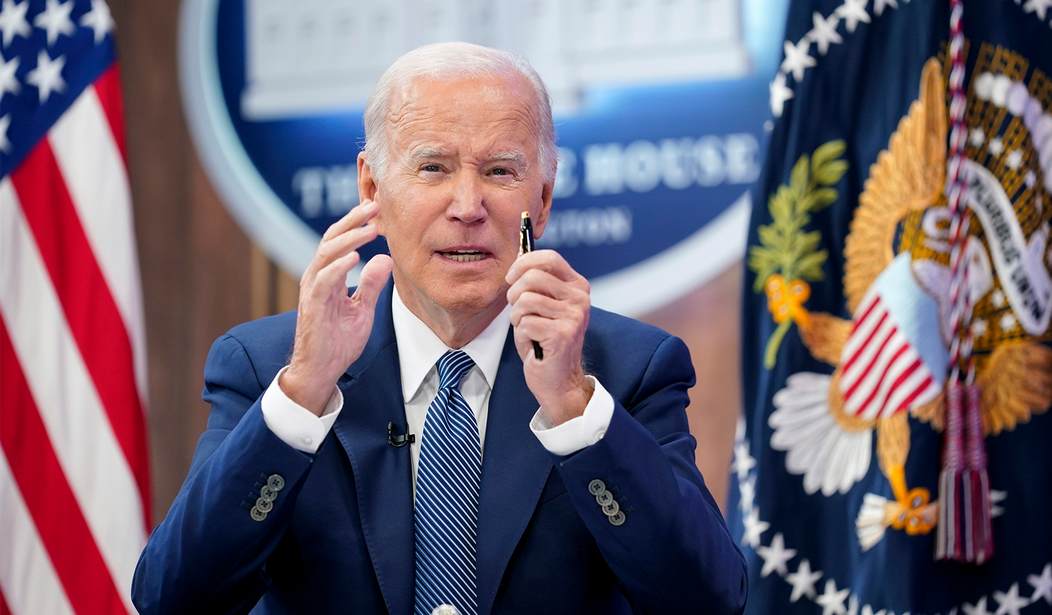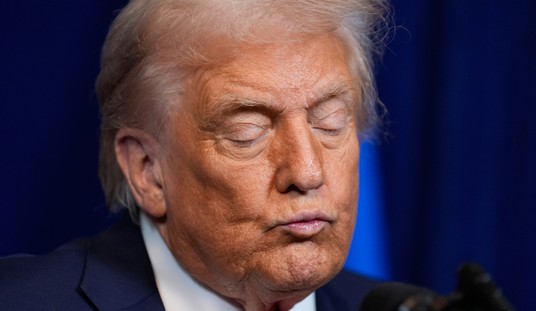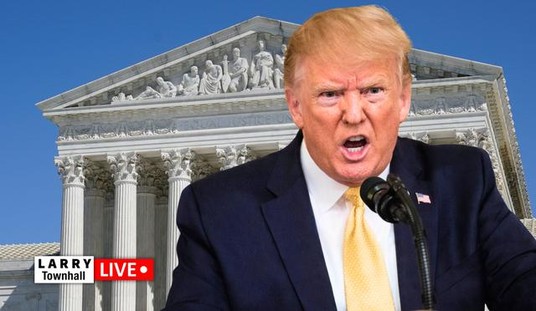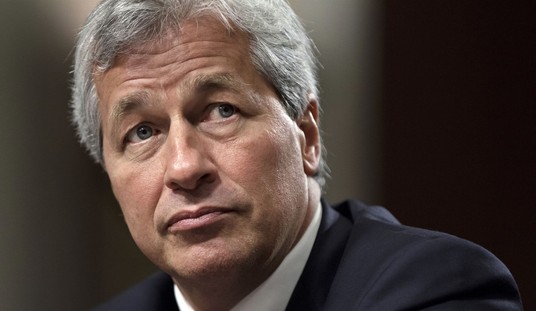(The opinions expressed in guest op-eds are those of the writer and do not necessarily represent the views of RedState.com.)
On August 25, President Biden announced, “Using the authority Congress granted the Department of Education, we will forgive $10,000 in outstanding federal student loans. In addition, students who come from low-income families which allowed them to qualify to receive a Pell Grant will have their debt reduced $20,000.”
The problem, for Biden, is that Congress never authorized the president (nor the Department of Education) to unilaterally forgive $400 billion in outstanding student loan debt.
As a U.S. District Court in Texas recently ruled, “The Constitution vests ‘all legislative powers’ in Congress. This power, however, can be delegated to the executive branch. But if the executive branch seeks to use that delegated power to create a law of vast economic and political significance, it must have clear congressional authorization. If not, the executive branch unconstitutionally exercises ‘legislative powers’ vested in Congress. In this case, the HEROES Act— a law to provide loan assistance to military personnel defending our nation—does not provide the executive branch clear congressional authorization to create a $400 billion student loan forgiveness program. The Program is thus an unconstitutional exercise of Congress’s legislative power and must be vacated.”
In other words, the federal judge deemed Biden’s student loan forgiveness plan to be “unlawful” because the Constitution grants Congress, not the executive branch, the power of the purse. The judge also ruled that the Biden administration flagrantly violated the Administrative Procedure Act by failing to provide for public comment before the decision was put in place.
The Texas ruling was followed by an even more stinging rebuke of Biden’s student loan forgiveness plan by the Eighth Circuit Court of Appeals. On November 14, a three-judge panel issued a nationwide injunction that temporarily prohibits the administration from moving forward with its debt forgiveness plan.
According to the Eighth Circuit Court of Appeals, “We GRANT the Emergency Motion for Injunction Pending Appeal. The injunction will remain in effect until further order of this court or the Supreme Court of the United States.”
As one would expect, the Biden administration did not greet the recent rulings with open arms.
“We are confident in our legal authority for the student debt relief program and believe it is necessary to help borrowers most in need as they recover from the pandemic,” said White House Press Secretary Karine Jean-Pierre.
She added, “The administration … will never stop fighting to support working- and middle-class Americans.”
Someone ought to tell the White House Press Secretary that the administration’s misguided decision to forgive student loans would actually harm working- and middle-class Americans while overwhelmingly benefitting the wealthy.
As Lindsey Burke, director of the center for education policy at The Heritage Foundation, recently wrote:
“Working and middle-class Americans who chose not to go to college, or who responsibly paid off their student loans, should not be forced to pay off the loans of others … It will rob working Americans in order to pay off the college degrees of individuals who are statistically more likely to earn more in their lifetimes simply by possessing a college degree. This is radically unfair, and it’s the epitome of putting special interests ahead of working Americans.”
Moreover, Biden’s bailout plan is a total slap in the face to those of us who dutifully paid back our student loans, including this author. It is also blatantly unfair to the millions of young Americans who decided to forgo college in order to avoid massive debt accumulation.
Fortunately, it looks as if Biden’s student loan forgiveness is dead in its tracks, at least for now. Eventually, the case will likely make its way to the docket of the U.S. Supreme Court, which in its current iteration is expected to rule the plan to be unconstitutional on its face.
Perhaps the Court could use Speaker of the House Nancy Pelosi’s (D-CA) own words in its final decision. In July 2021, Pelosi admitted, “People think that the President of the United States has the power of debt forgiveness. He does not. He can postpone, he can delay, but he does not have that power. That has to be an act of Congress.”
Or, the Court could cite Biden’s own words, in which he falsely claimed that his student loan forgiveness plan “passed by a vote or two” in Congress.
As we all know, there never was a vote on this in Congress. And, with the GOP taking the House of Representatives in the mid-term elections, it is a fait accompli that there will be no vote on this over the next two years.
Suffice to say, President Biden’s ham-handed approach failed over the short term. However, given the fact that young Americans voted blue overwhelmingly in 2022, it remains a definite possibility that this issue will not die anytime soon.
Chris Talgo ([email protected]) is senior editor at The Heartland Institute.














Join the conversation as a VIP Member